Q+A With Jenn Wasner of Wye Oak: “If it’s just virtuosity for virtuosity’s sake, then I really have no interest in it.”
[This feature originally appeared in the eleventh issue of She Shreds, published in November, 2016. Subscribe here and receive your copy of She Shreds’ 12th issue with your subscription.]
Jenn Wasner is the type of musician who hardly ever sits still. For over a decade, she’s been best known for singing and playing guitar (and occasionally playing bass and keyboard) in the Baltimore-based indie rock duo Wye Oak.
Between Wye Oak’s five albums (and one EP), Wasner has also launched two side projects—the synth-poppy Dungeonesse and her solo project, Flock of Dimes—and released a signature guitar with Reverend. This past summer, Wye Oak released a set of reworked older songs titled,Tween on Merge Records, and this fall will see the release Flock of Dimes’ long-awaited debut album, If You See Me, Say Yes through Brooklyn indie label Partisan Records.
Regardless of which moniker she’s using—or which instrument she’s playing—Wasner infuses her music with her emotive, expressive playing. She’s committed to pushing the boundaries of her songwriting and is involved in every aspect of the album-making process. Wasner spoke to She Shreds on the phone from her home in North Carolina (where she joked she moved to “live alone in the woods like a hermit”) about her creative process, her gear, and her next steps.
She Shreds: Early Wye Oak records have a ton of guitars. Then on Shriek [released on Merge Records in 2014], guitars took a backseat but they’re back in a big way on Tween. Could you tell me a little bit about what motivated your instrument changes throughout these albums?
Jenn Wasner: The biggest difference in the songwriting process with Tween is that those songs all came to be right around the time when I was actually learning to self-produce and self-record. When you’re writing with just instruments, what you’re able to accomplish is limited by your skills on that instrument. When you’re recording, and producing, and building from the ground up as you’re writing, it just opens up this world of possibilities to you.You’re able to write bass lines, and keyboard parts, and melodies. And so, what instrument became the focal point is less exciting to me than the manner in which those songs were written. And I think that’s why I’m so proud of them, because I feel like they are a better representation of who I am and the kind of ideas that I have.
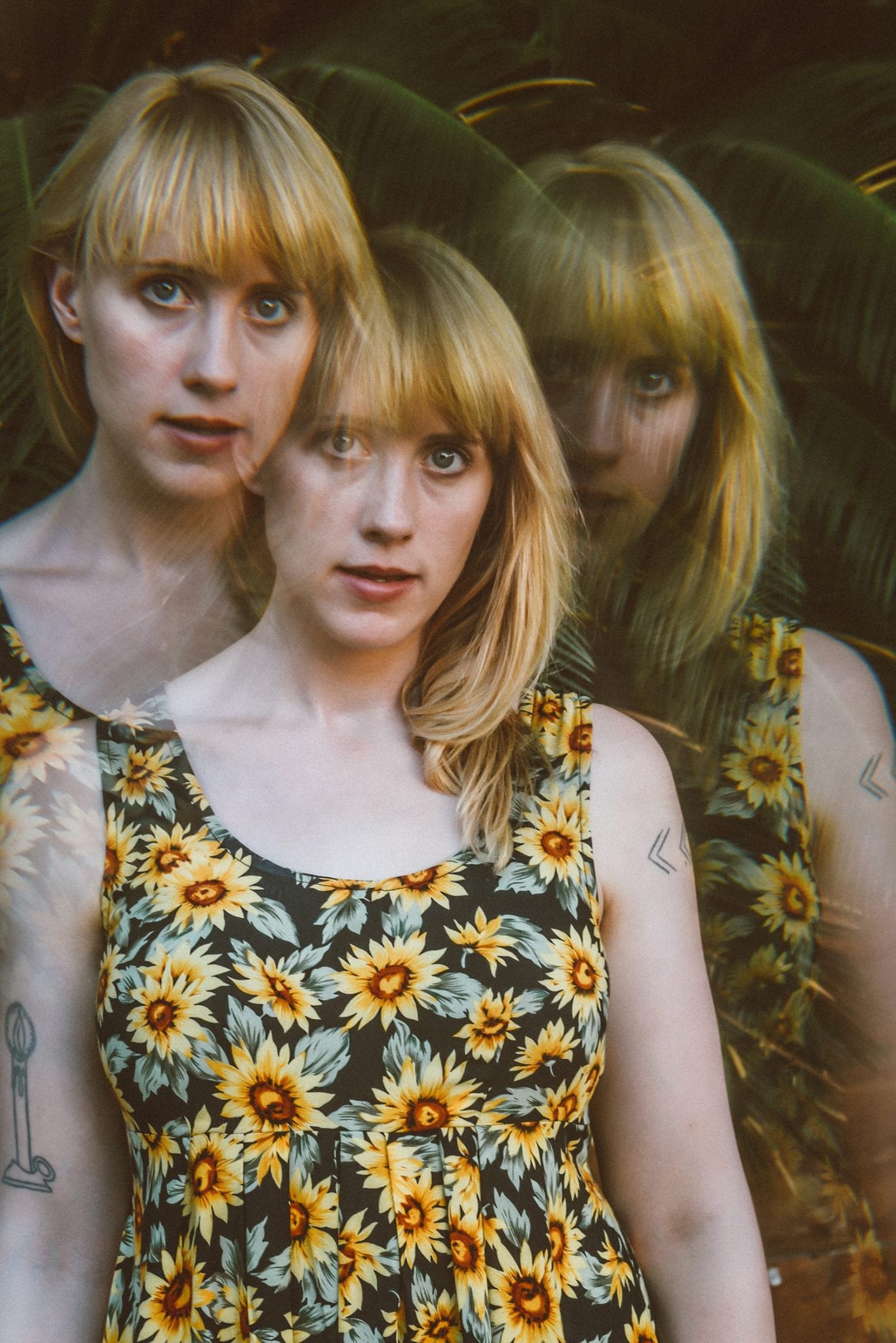
In an essay about your signature guitar—the Reverend JW-1—you said you’ve “never striven for virtuosity.” What did you mean by that, and what kind of things do you strive for as a guitarist?
Obviously it’s in my best interest to be as competent as possible, but everything has to be in service of the ideas themselves. And from an artistic standpoint, it all comes back to: Does this have a purpose? And, is it helping to communicate the underlying message or emotional resonance that I’m trying to communicate? And if it’s just virtuosity for virtuosity’s sake, then I really have no interest in it. I’m not necessarily saying that I’m only inspired by kind of rough, shoddy guitar playing, either; it’s more that you can do great things with very little. You don’t have to be a total shredder if you are inventive. I will say, though—being devil’s advocate to myself—that the better I get at every instrument that I play, the better my ideas are. So, they have to go hand-in-hand.
Can you tell me about the Reverend JW-1?
Well, I’ve been playing Reverend guitars for quite a few years now. The thing that I think a lot of people love about Reverend the most, and I really do, is that they are just really, really loud, but not too bright. They’re nice and warm and full. Honestly, there weren’t any specification changes that I requested. They really wanted to associate that [Charger HB] with me, because I’ve been playing it for so many years, and I was just honored to do it.
Visually speaking, though, I have a new record coming out with my solo project [Flock of Dimes]. And aesthetically speaking, the whole project revolves around this pattern that my good friend from Baltimore—a really talented artist, and also incredible drummer—April Camlin designed for me. So, when I wear the guitar on stage with Flock of Dimes, I’m also wearing the jumpsuit, with the same pattern, and the idea is that it sort of becomes an extension of my body.
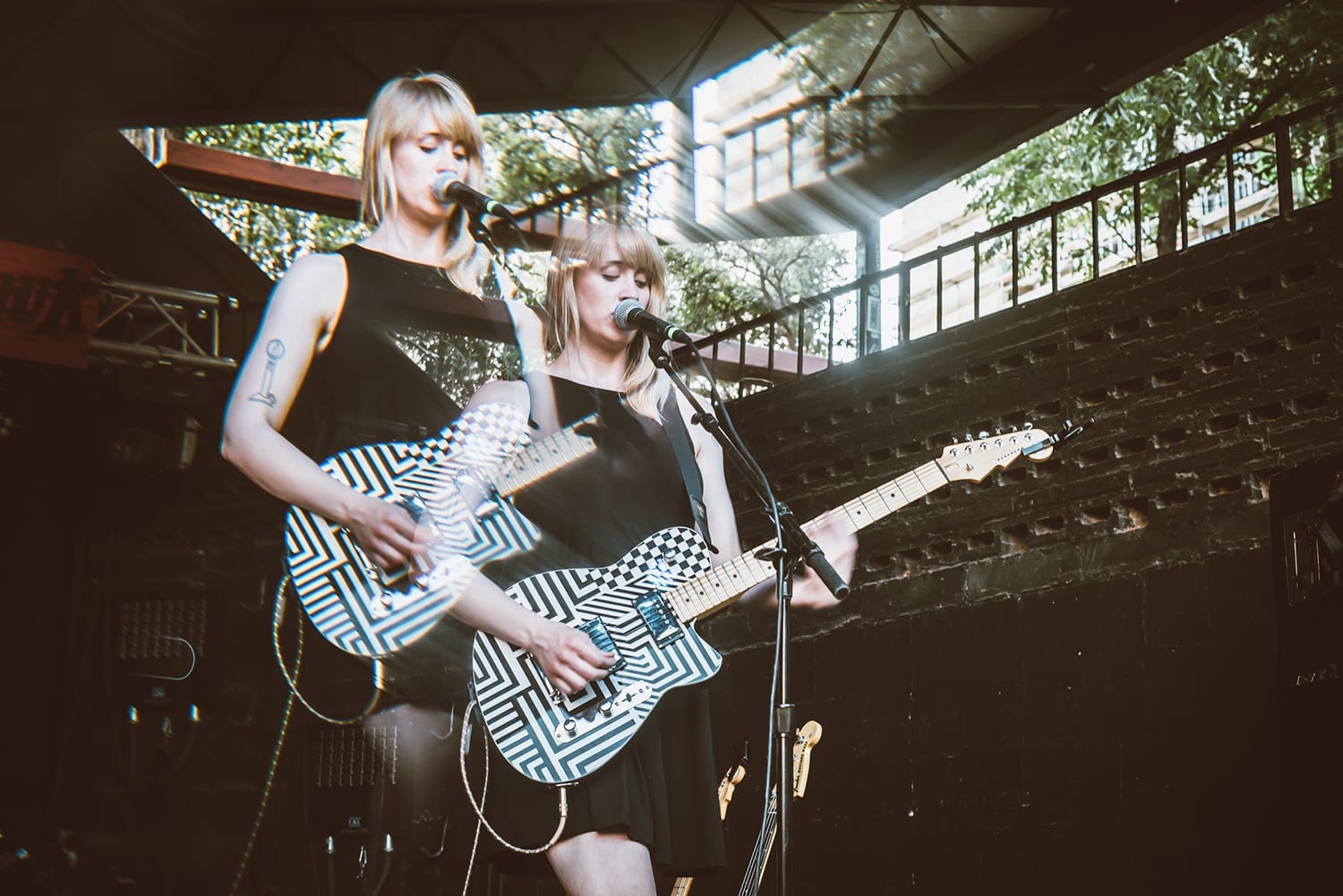
I know you’ve been working on Flock of Dimes for a while. Why is this the moment that you’re going to put out the album?
I finally finished it! This is the first time that I really did this kind of undertaking, to write everything and play almost everything, and self-produce. I did work with a few really good, close collaborators and really talented musicians, but for the most part, it was just me. I didn’t realize how much of a challenge this would be. It’s the kind of thing where I’ve been working on it for so long, and it was just like, “I’m not going to settle for anything less than what I know this can be, and should be.”
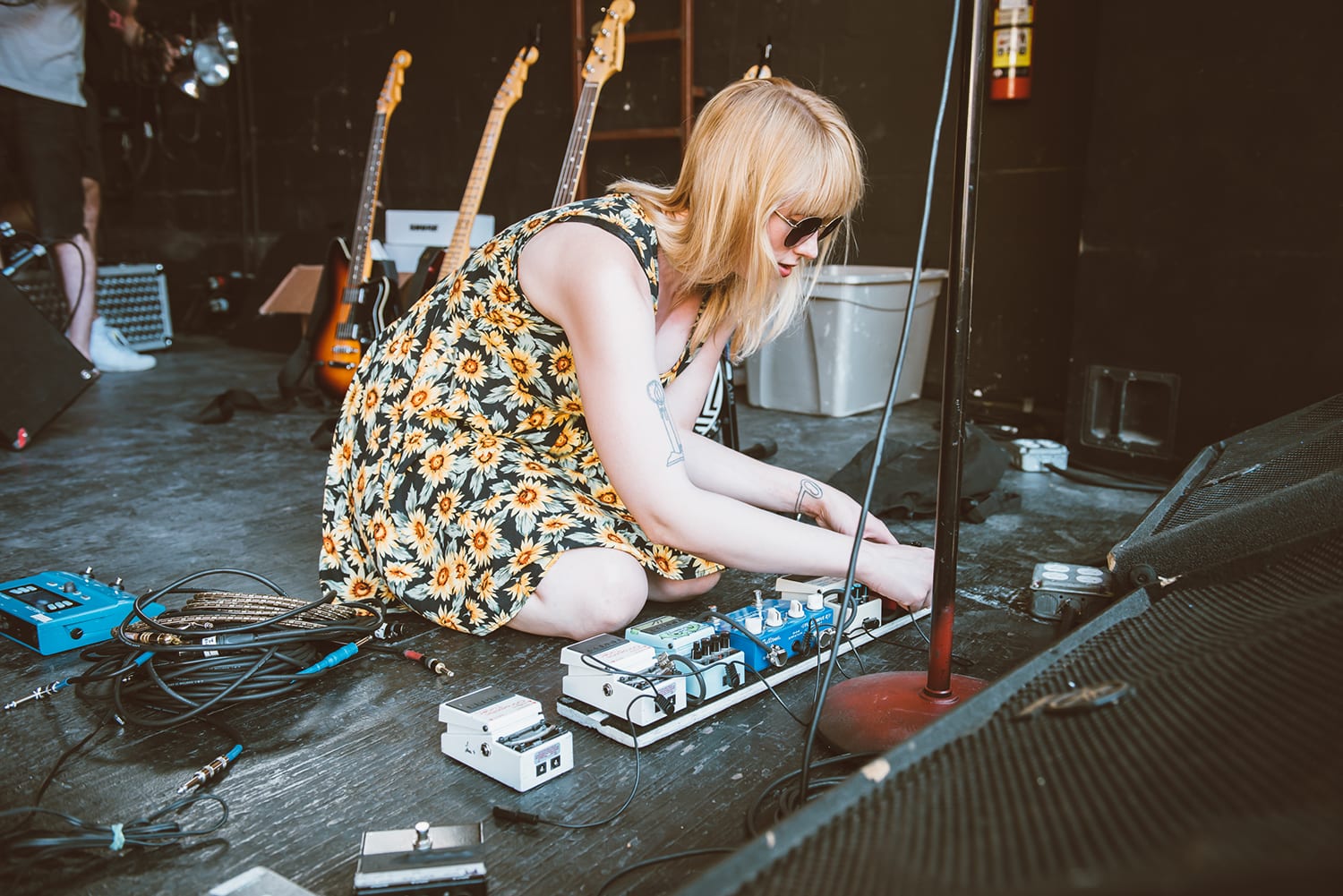
Does it sound closer to Wye Oak or Dungeonesse? Or is it something totally new and different?
It’s definitely its own thing. It’s very guitar-heavy, it’s also very synthesizer-heavy; I like to think of it as forward-thinking electro-acoustic pop music. One thing I can definitely say about it is that it’s one of the most emotionally straightforward and vulnerable things I’ve put out in the world. By a long shot. So, you know, no pressure! I hope people like it! [Laughs.]
Do you think touring with songs that feel especially emotionally straightforward and vulnerable will change the way that you perform?
It’s the first time I’ve had the pleasure of being a band leader and designing the whole show to my expectations. It’s incredibly intimidating, and I can’t tell you how many times I almost have a panic attack because I’m just like, I don’t know what I’m doing, and everyone will know. But I think one of the reasons why it’s really important that this is happening now is that I’ve been doing this for long enough to stop myself when I go down that path and be like, “You do know what you’re doing. You’ve been doing this for a long time. You’re just as capable as anybody else. So just shut up and do it!”
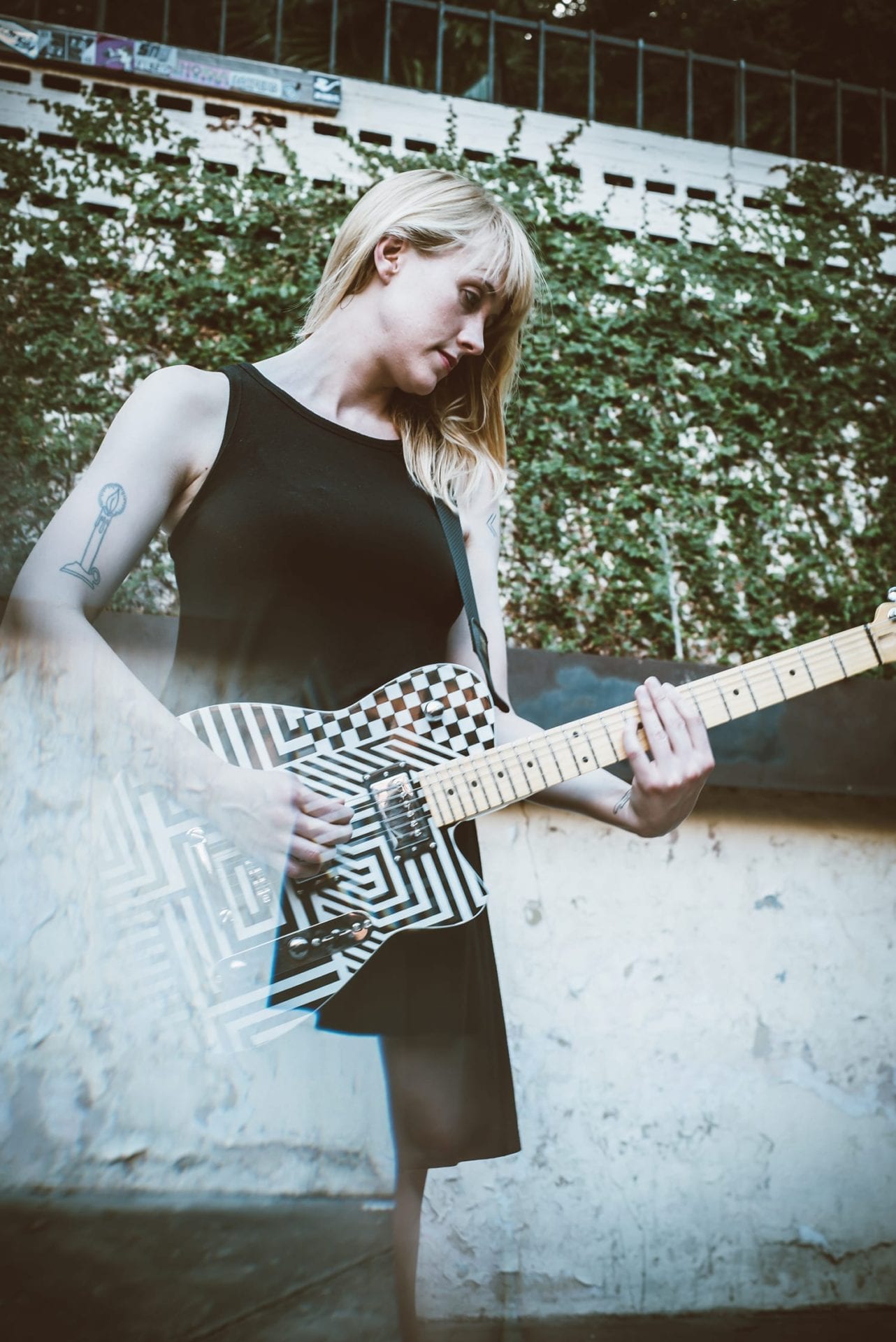
Is there anything else that you think that She Shreds fans should know about?
It’s cool to be a part of something like this, because nothing makes me happier than being able to do what I do and have people take it seriously. Let me tell you this story, because this is actually the perfect forum. I sometimes forget—and it’s amazing that I could forget—how fucking bad it can be for women out there. I was playing a show and setting up my pedals, and this older guy came up to me with his teenage son. He was asking some questions about my pedals. So I’m trying to set up and I’m answering them, and finally he asks me, “So, do you, like, pick out all your own pedals? Or is there a guy who picks them out for you?”
What?!
I lost my mind! I basically laughed at him, and I said, “I’m sorry, I don’t mean to embarrass you, but you have to understand what an offensive question that is!” And then I went backstage and ranted and raved for a little while. But it’s just like, “what do I have to do?” I’ve been a professional musician for a decade. I am competent on a variety of instruments. I write everything. I self-produce. People come to my shows. What else do I have to do to get the benefit of the doubt that I know what the fuck I’m doing, you know? [Laughs.]
Seriously. It’s frustrating, because the problem is bad attitudes, not that women aren’t good enough at guitar, or don’t know enough about pedals.
Oh, absolutely. The entry curve is tough because it really sucks to be starting out at something and have people assume that you’re bad at it. It would scare anybody off. And it was a problem for me—I think that’s why it took me so long to even be willing to take the chance and learn how to record and engineer and produce and do all the things that I can do. Because I was just told, from every angle, consciously and unconsciously, that I wasn’t allowed to do it. And so, I guess, the message here is: You are allowed. So do it.

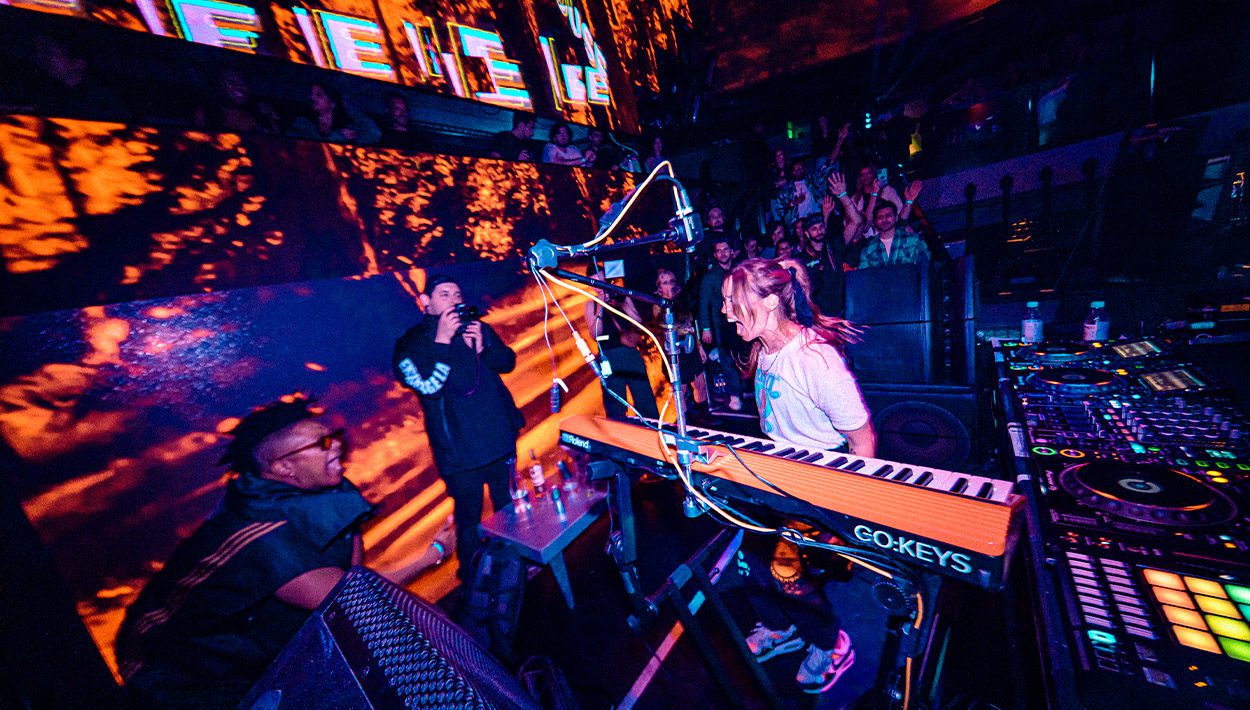
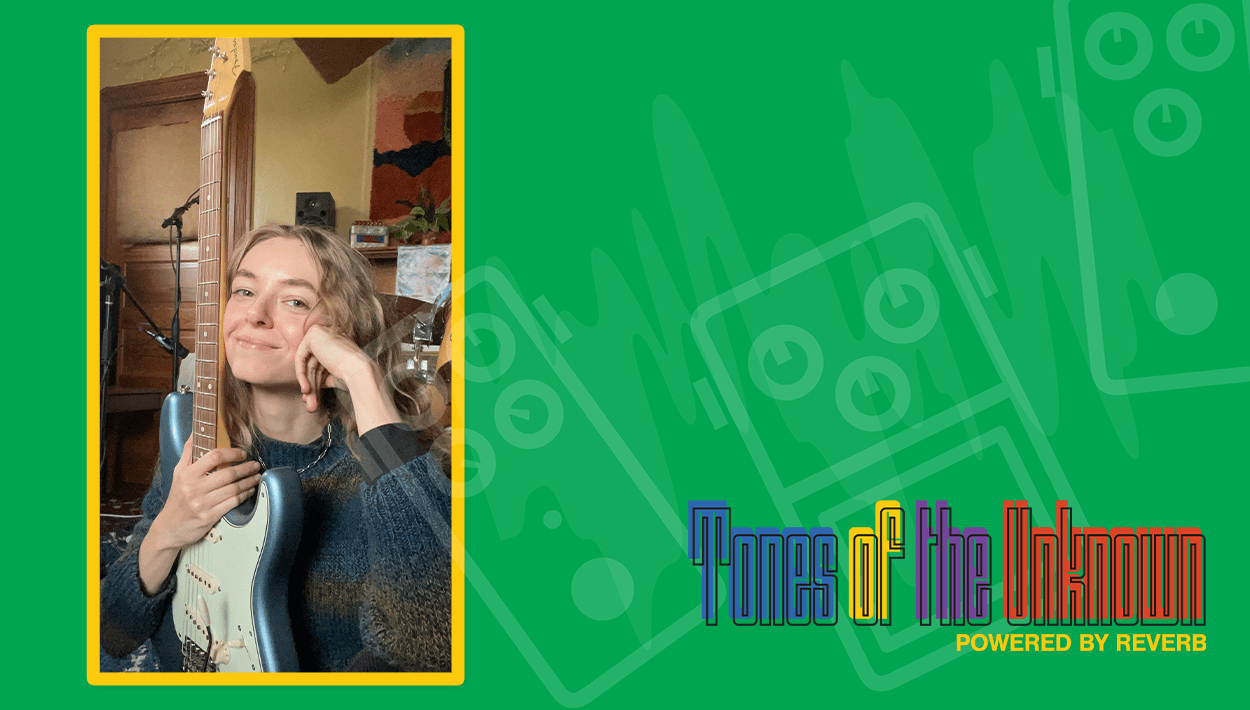
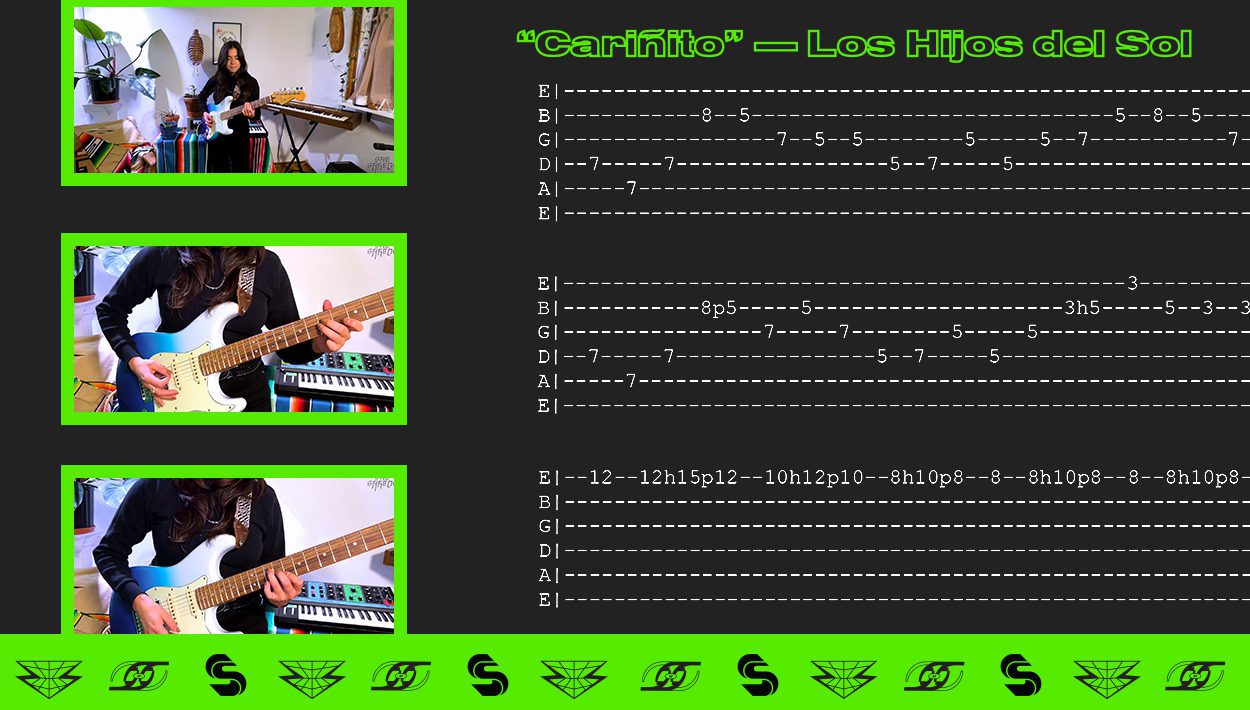
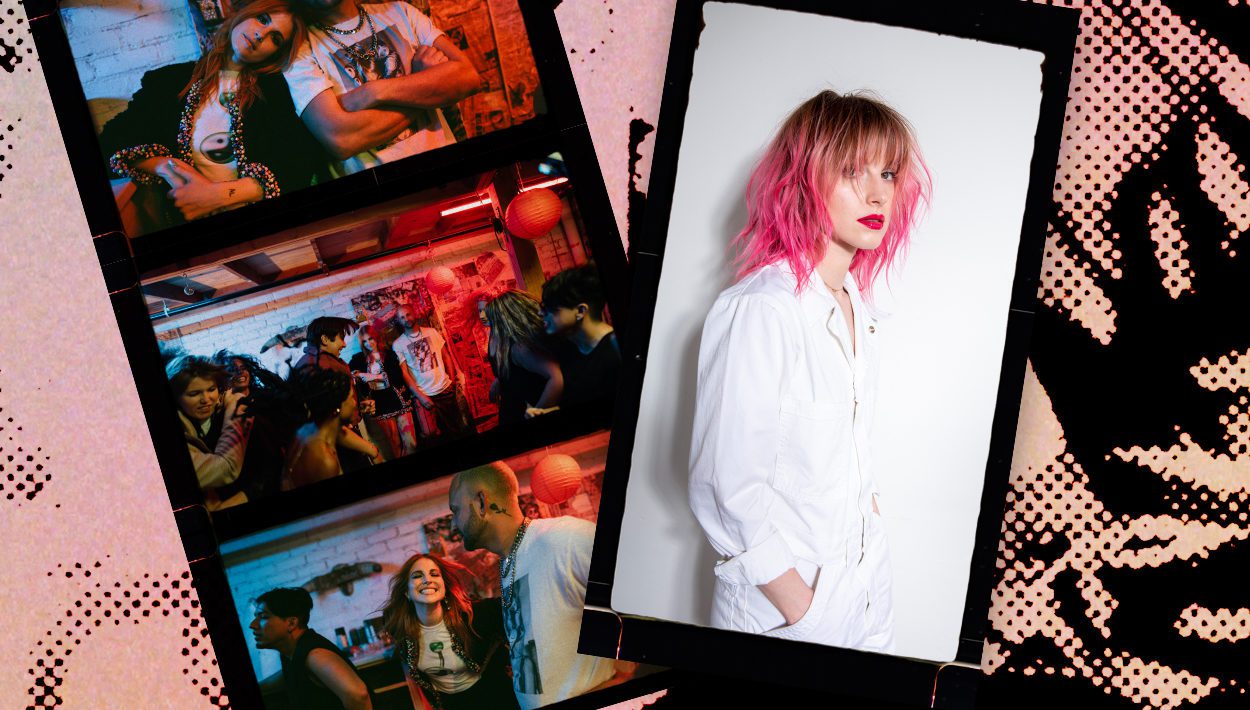
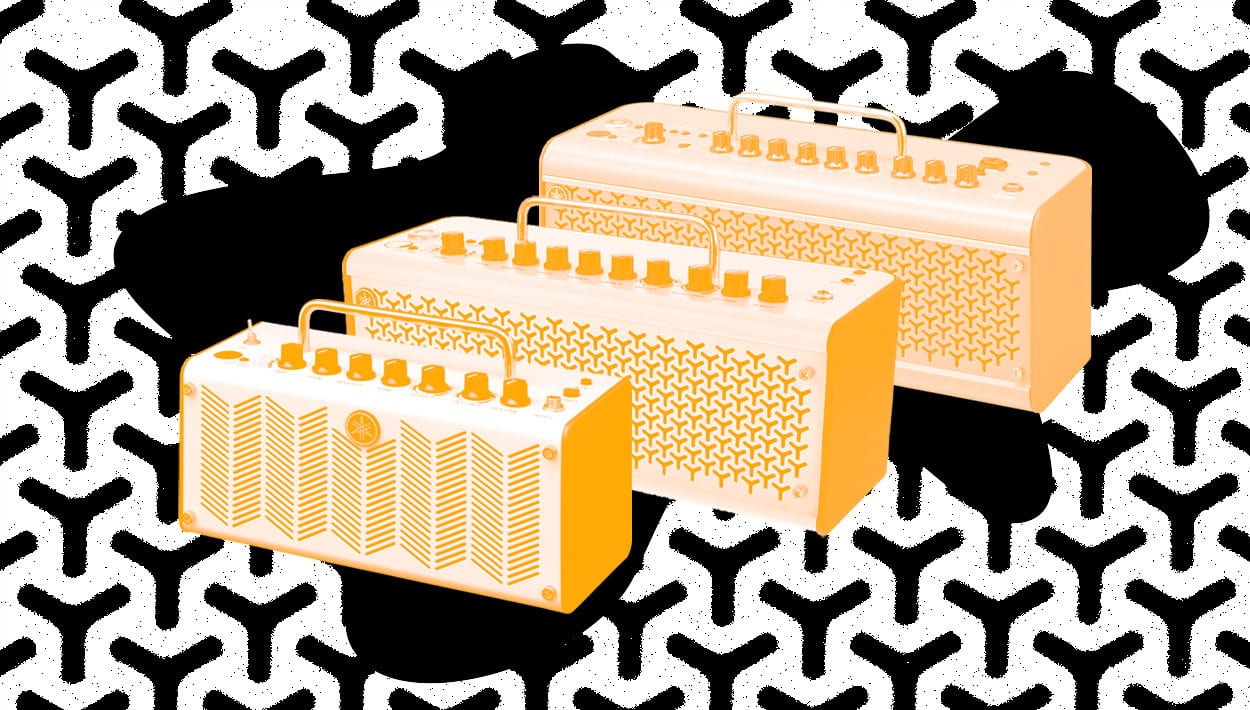
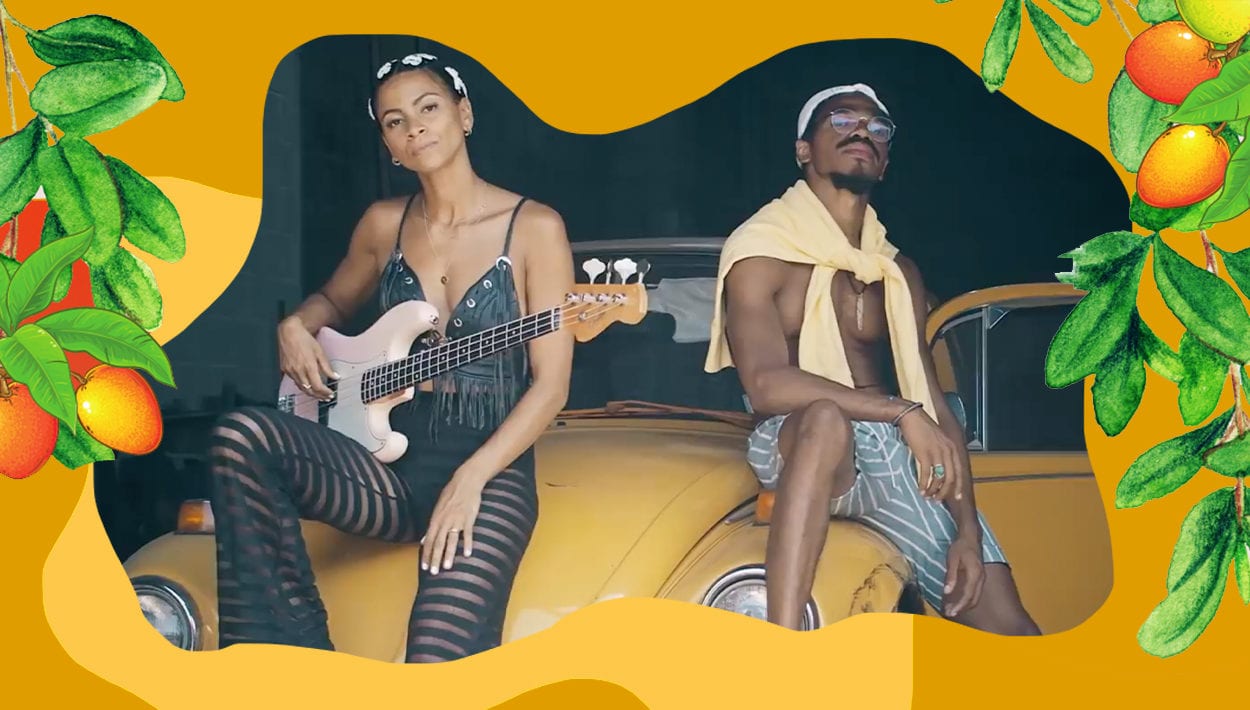
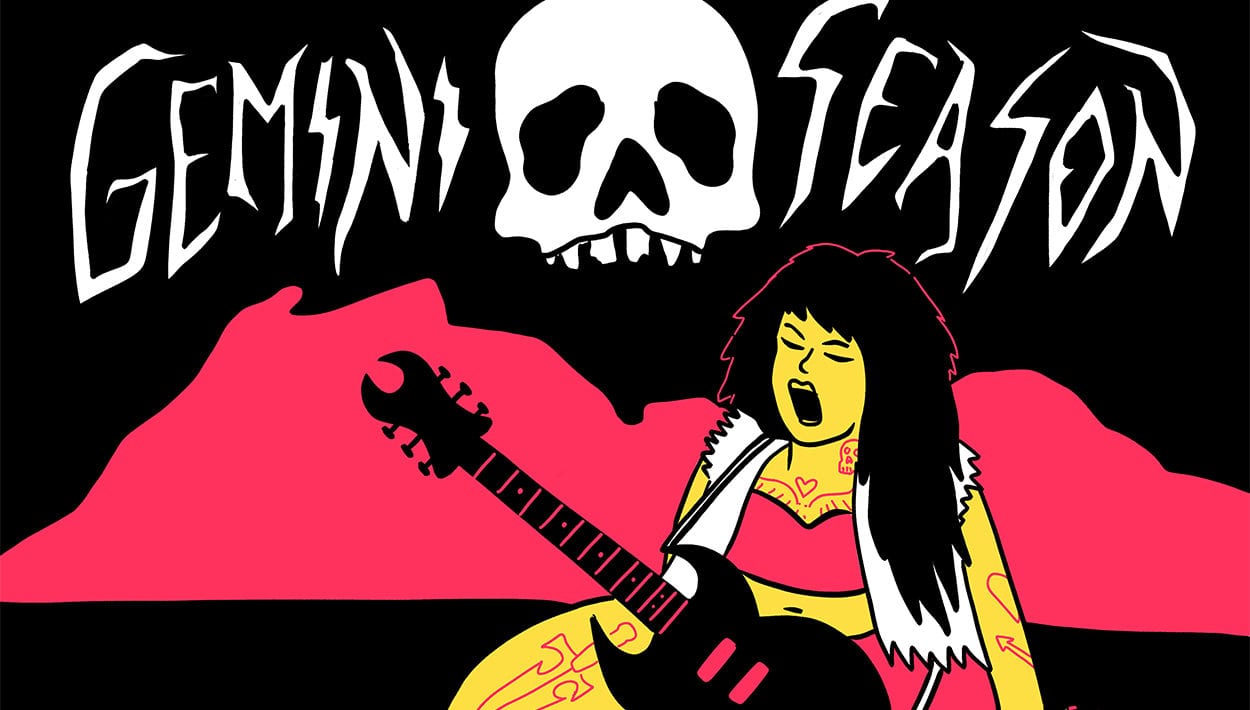
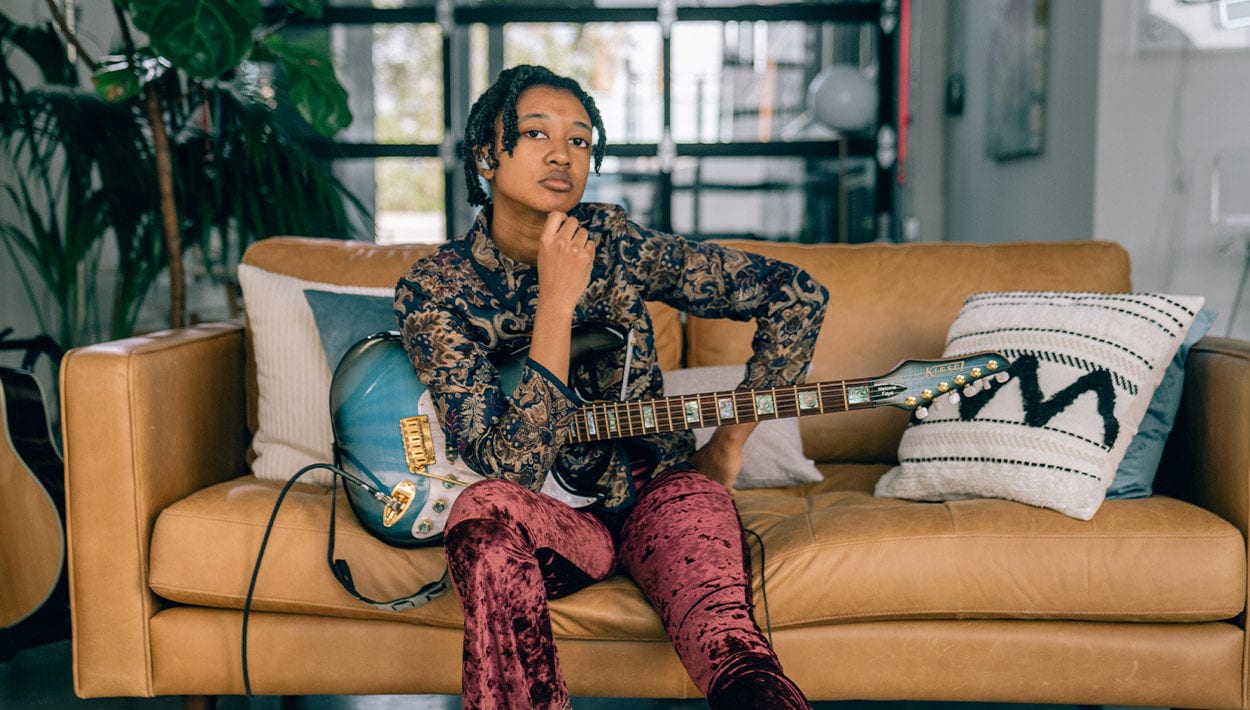
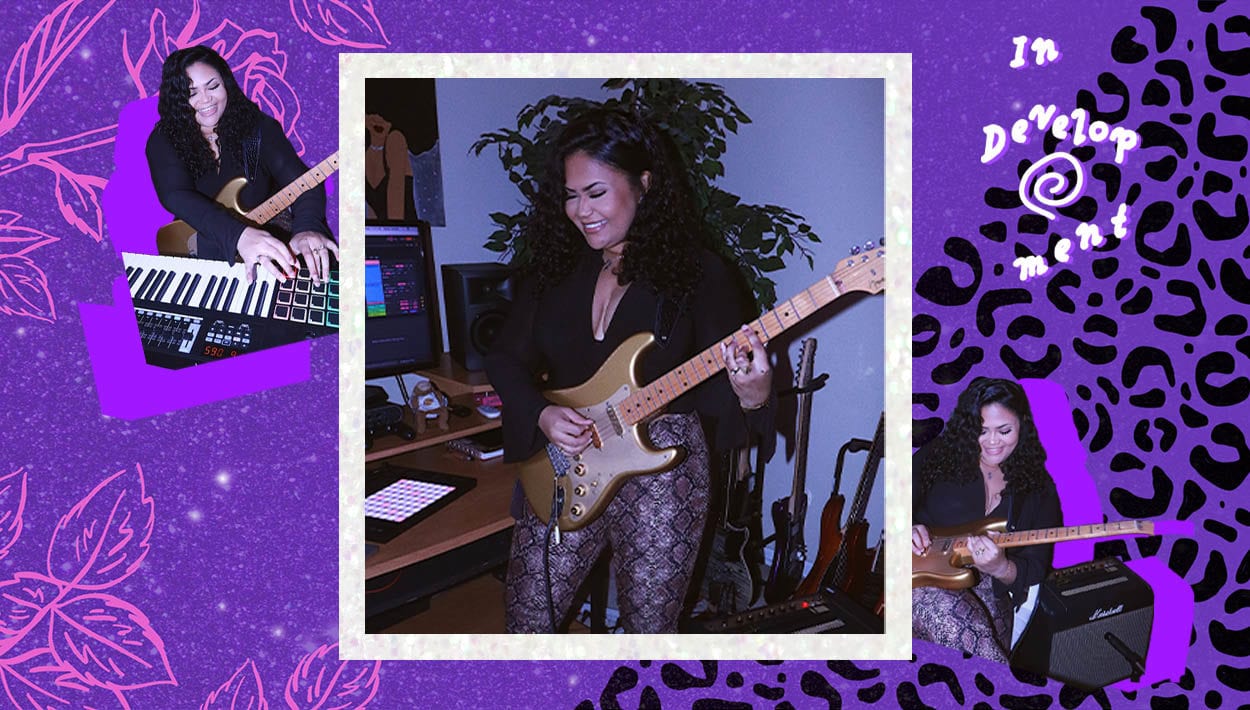
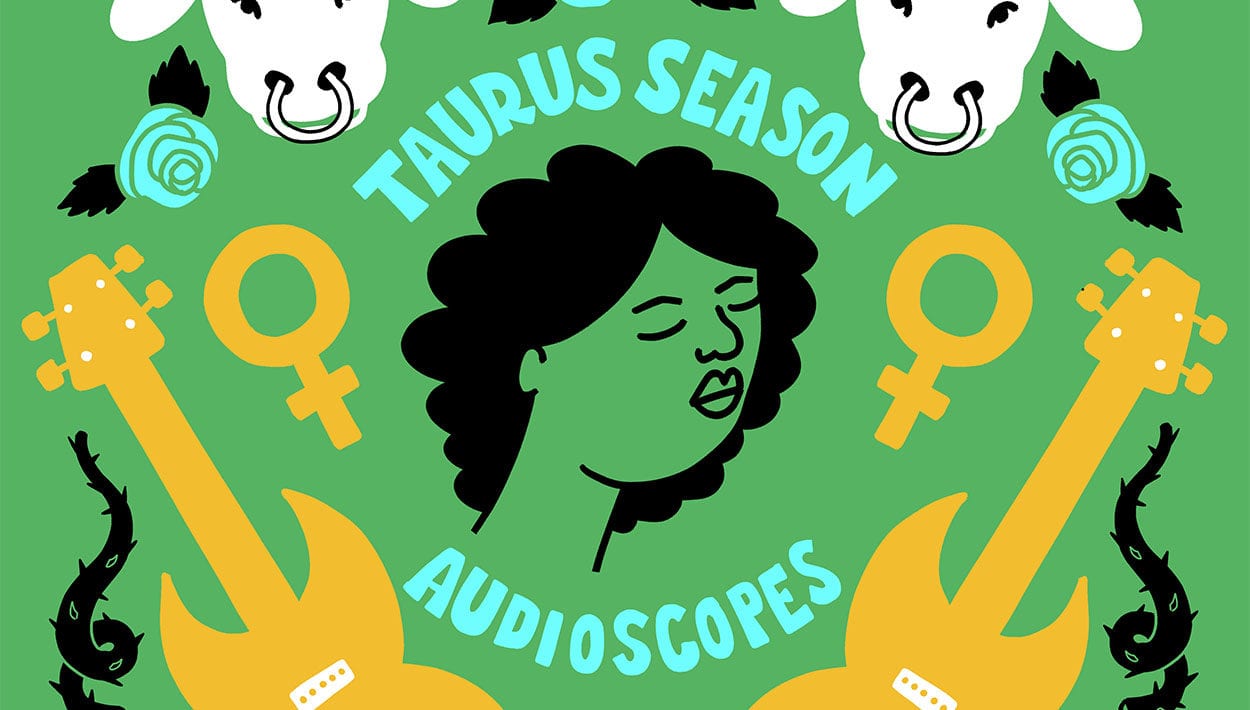


Comments
No comments yet